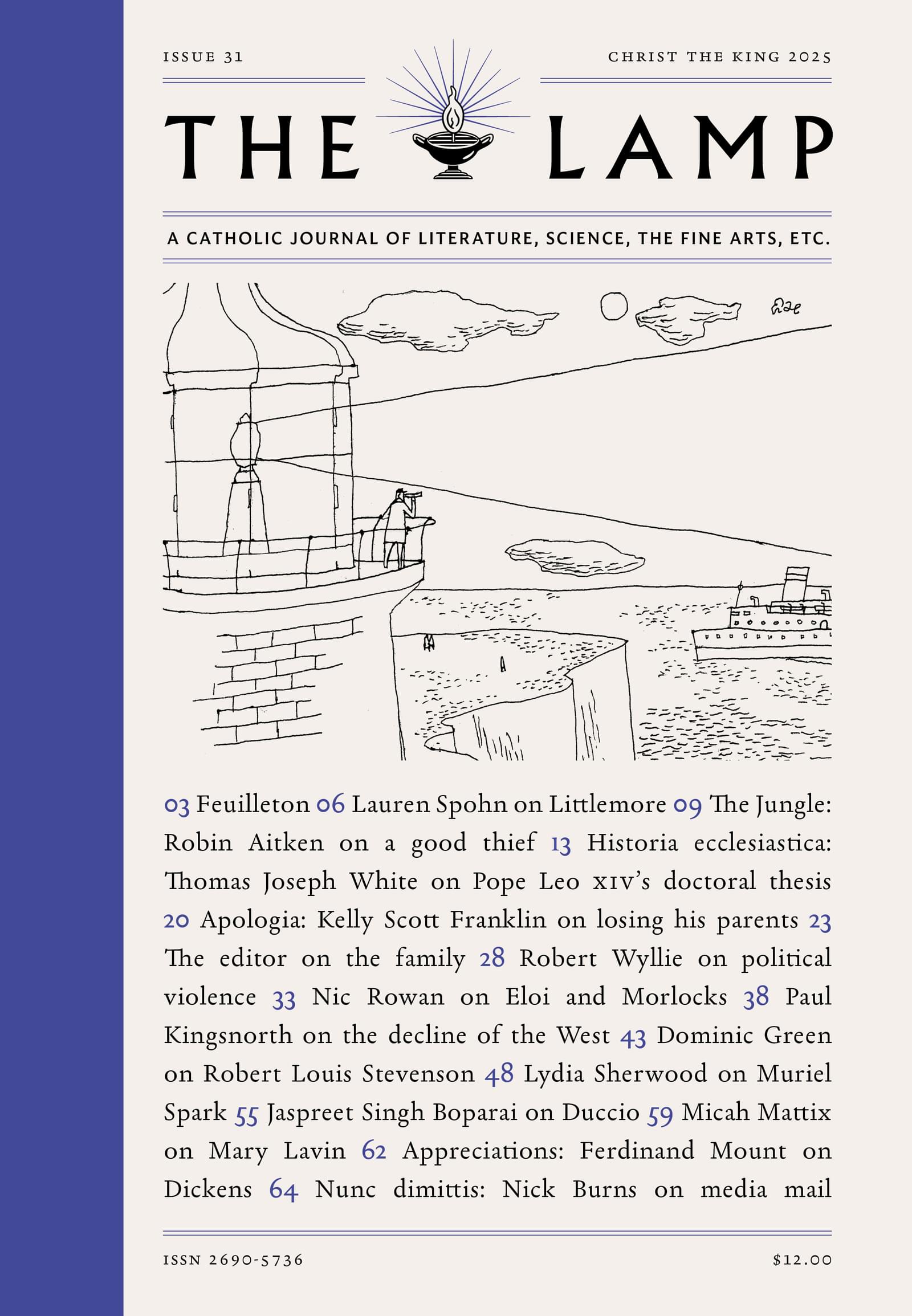The Americans are the people who celebrate Thanksgiving. What about Independence Day, you’ll ask—the Declaration, sic semper tyrannis, liberty or death. The American Creed, parades. Blowing things up in honor of a hard day of signing contracts. This all is undeniably very American, but is ultimately tied to our particular continuous government. It is an accident of our national youth that we identify the nation with a government, rather than with a set of traditions that happens to include political traditions. When this republic passes, July 4 will be no more relevant than Magna Carta Day to the American people.
Yet still there will be an American people. Thanksgiving preceded 1776, and it will still be celebrated when the 1789 Constitution is a historical curiosity. It is those Americans of the future to whom Thanksgiving most truly belongs.
It’s a slippery holiday. Obviously Christian, but equivocally so, and capacious enough to accommodate any worshiper of goodwill—here the seed of Americanism as Leo XIII condemned it. A festival that is celebrated mostly privately—no obligatory church services, no fireworks. (Indeed, the only publicly recognized element is in fact the suspension of the public sphere—banks closed, mail service paused, and, until a few years ago, darkened stores only dreaming of the Black Friday onslaught.) Even the handful of traditional impassioned public displays—the Macy’s parade, the dog show, the Cowboys—are observed on the T.V. in cool-headed privacy. These contradictions are essential to the American character.
So is the contradiction of being natives descended from settlers. “I have come more and more strongly to believe that the ultimate moral goal, even the moral necessity, of the American people must be to become the aborigines of the American land,” Wendell Berry wrote. Thanksgiving is the only time most Americans think much about the first inhabitants of this continent; it is one of the distinct features of the holiday that its myth is of friendship rather than of conquest, a Christian correction of Romulus’ war with the Sabines. In The American Credo, a satirical list of American attitudes and cliches, H.L. Mencken includes the belief “that the extinction of the Indian has been a deplorable thing.” It is not coincidental that the following entry is the belief “that everybody has a stomach-ache after Thanksgiving dinner.” At Thanksgiving, we have come closest to becoming Berry’s aborigines, at least in cuisine: turkey, squash, potatoes, the heritage given us by the American Indian and multiplied by our national genius for abundance.
Yet the slipperiness extends also to the groaning board—every family has its preferred additions, sauerkraut or sushi or lasagna. Augmentation rather than replacement is the rule. An old Baltimore Sun feature reports that Mencken himself would in bachelor days take his Thanksgiving dinners at a restaurant on Albemarle Street, the heart of Charm City’s now decayed Little Italy; per the proprietor, he would dine on spaghetti as a rule. Marriage brought that great hater and even greater lover of Americans back to turkey. In Brazil, it all ends in pizza; in America, no matter what else is served, it all ends in turkey.
Thanksgiving is the best of the American holidays, the most American of the American holidays, but the most difficult to write about. There is a reason that those who are embarrassed of America fasten on Thanksgiving dinner as the locus of resentment. It contains the great conflicts of the American character: a public life characterized by the absence of strictures on public life, piety without dogma, settlers but natives, exotic yet provincial. America is the nation embarrassed to announce herself, and the American is a stranger to himself.
So we come back to the original proposition: The Americans are the people who celebrate Thanksgiving. I am an American, Maryland born—Maryland, that confused state—and go at things as I have been taught, including Thanksgiving. I am very blessed. I have a beautiful and healthy family. I get to do something I enjoy very much and am paid a living wage for it. I get to speak to the American people every week, sometimes twice a week, and occasionally they speak back in the comment boxes, in my email, and occasionally in person (even if only to tell me I am wrong and stupid). I live in a country where, despite the efforts of some, I am free to worship, speak, and vote as I please, unmolested by the state and amid great material abundance. These are all occasions for gratitude.
O most merciful Father, who hast blessed the labors of the husbandman in the returns of the fruits of the earth; We give thee humble and hearty thanks for this thy bounty; beseeching thee to continue thy loving-kindness to us; that our land may still yield her increase, to thy glory and. our comfort; through Jesus Christ our Lord. Amen.




